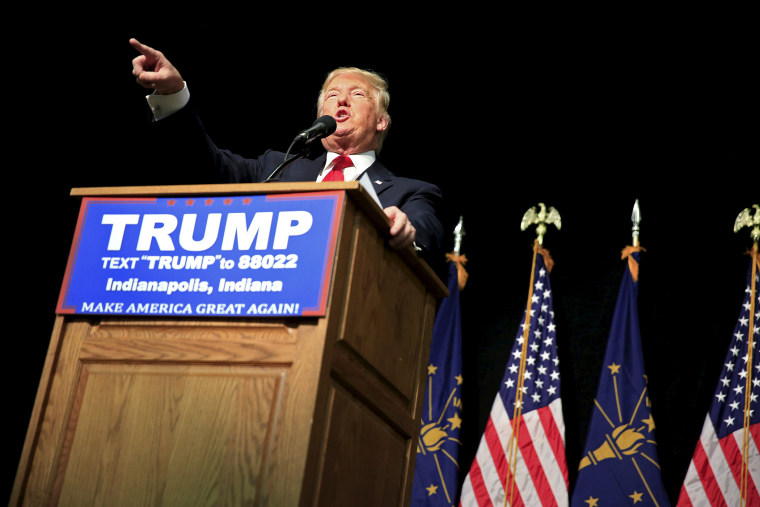Donald Trump is running on a plan to dramatically cut taxes for the ultra-rich while talking up his willingness to raise taxes on the same group. Sooner or later, it’s going to get him into trouble.
“Do you believe on raising taxes on the wealthy?” Trump was asked on the TODAY Show on Thursday morning.
“I do,” he said. “I do. Including myself, I do.”
This is in line with Trump’s rhetoric when he first started running for president, and he rankled conservative groups last summer by talking up his willingness to raise taxes at the top. Conservative activists, who have long been united in their demands for a lower tax burden at the top, reacted with horror.
RELATED: Cruz attacks Trump for transgender bathroom comments
But then Trump released his actual tax plan — one of the most detailed policy proposals he’s put out of any kind — and, instead, it was everything they wanted.
Trump’s proposal would cut taxes for everyone, but especially the richest of the rich. If enacted, the top income tax rate would drop from 39.6 percent to 25 percent. It would also create an even lower 15 percent rate for pass-through income that economists predicted rich individuals would rejigger their finances to qualify for instead. The corporate tax rate would drop from 35 percent to 15 percent. And wealthy individuals like Trump would be able to leave their fortunes to their kids without paying any estate tax at all, which only affects inheritances greater than $5.45 million in 2016 and tops out at 40 percent.
The non-partisan Tax Policy Center analyzed Trump’s proposal and, in addition to putting its price tag at $9.5 trillion over 10 years, found the biggest gains would go to taxpayers like Trump. For the top 1 percent of earners, the average reduction in their tax bill would be 11.8 percent, about $275,000, while for the top 0.1 percent it would be 12.5 percent and $1.3 million. For the bottom 20 percent of earners, their tax bill would be reduced by just 0.9 percent and $128 and 2.8 percent and $969 for the next highest 20 percent.
Trump tried to gloss over this by emphasizing select areas where he’d raise taxes on some wealthy investors — an example he cites often is his plan to end the carried interest loophole, which allows hedge fund managers to pay lower rates on their profits. But it’s small change compared to the net tax cuts elsewhere that would generate only around $17 billion in new revenue over the next decade with current tax rates and even less with Trump’s lowered rates.
Up until now, Trump has faced few challenges to his budget math on the tax end, however. That’s because top rivals all proposed similarly budget-busting tax cuts with big benefits for the top 1 percent. They also promise that they’ll unleash explosive growth to cover up the staggering cost. The same Tax Policy Center pegged the price tag of Sen. Ted Cruz’s plan to overhaul the tax code at $8.6 trillion and estimated it would give the top 0.1 percent of earners an average $2 million tax cut.
But that cone of silence gets removed as soon as the general election begins. Hillary Clinton is running on a plan to raise taxes for the top 1 percent by $78,000 per person for a total of $1.1 trillion, according to a Tax Policy Center analysis, and then use the money to finance benefits like paid leave for Americans further down the income ladder. Whoever wins the nomination will face regular attacks from Democrats over how to square their populist message with their plan to pad plutocrat bank accounts. In Trump's case, his personal wealth would make the attacks more pointed, especially if he ever gets around to releasing his tax returns, which would allow budget wonks to measure exactly how much he'd personally gain from his proposals. That makes this issue one to watch closely, even if no one is talking about it in the GOP primary.
